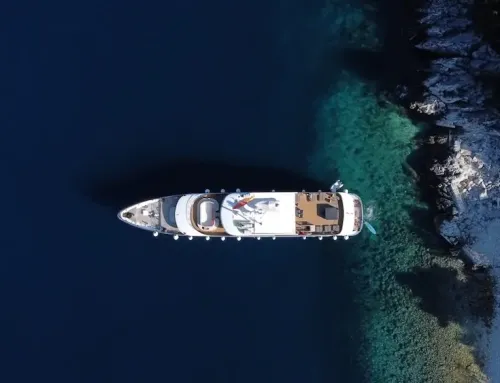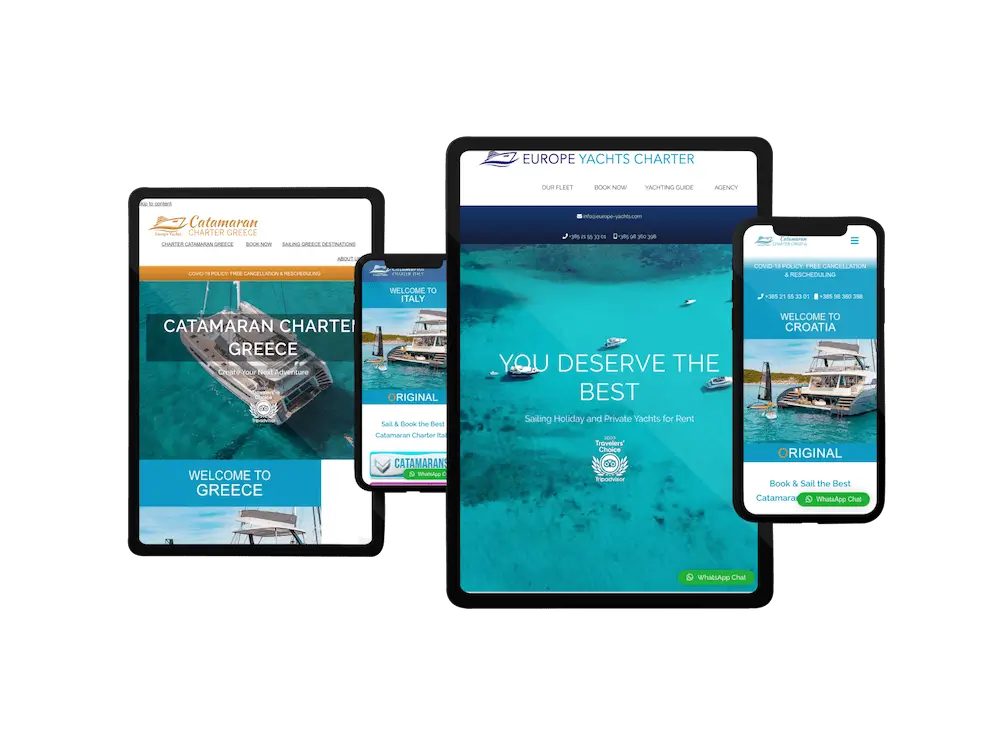
Check-in and Check-out Procedures for Yacht Charters
The Check-in Process Demystified
Why Check-in Sets the Tone for Your Charter
The check-in process is your gateway to a seamless sailing experience. It’s not just paperwork—it’s about ensuring safety, understanding your vessel, and clarifying responsibilities. A thorough check-in minimizes surprises, from hidden fees to equipment malfunctions, and ensures you’re legally compliant in your sailing destination.
Pre-Arrival Checklist: 10 Steps to Prepare
Documentation: What You Must Bring
- Bareboat Charters: Sailing license, VHF radio certificate, and passport copies. Verify requirements in our yacht documentation guide.
- Crewed Charters: Passport/ID for all passengers.
Security Deposits: Know Before You Go
Most companies require a deposit (€1,500–€5,000+) via credit card hold. This covers potential damages or rule violations. Learn how to protect your deposit in our security deposit explainer.
Provisioning: Stock Up Smartly
Pre-order groceries, drinks, and specialty items (e.g., gluten-free foods) through your charter company. Use our provisioning guide to avoid overpaying at marina stores.
Day of Check-in: A Step-by-Step Walkthrough
Step 1: Arrival at the Marina
Arrive by 9–10 AM to maximize daylight for orientation. Late arrivals may incur fees or delayed departures.
Step 2: Paperwork & Contract Review
- Charter Agreement: Scrutinize clauses on fuel policies, damage liability, and late returns.
- Insurance: Confirm coverage for accidents, theft, or third-party damage. Compare options in our yacht insurance guide.
Step 3: Safety Briefing & Equipment Check
- Mandatory Gear: Life jackets, flares, fire extinguishers, and EPIRB. Confirm availability via our safety equipment checklist.
- Systems Demo: Navigation tools (GPS, autopilot), engine startup/shutdown, and water systems.
Common Check-in Challenges (and Solutions)
Missing Documentation
Fix: Email copies ahead of time. Croatia and Greece have different rules—review our Croatia vs. Greece guide.
Language Barriers
Fix: Request an English-speaking technician or use translation apps for key terms.

Check In And Check Out Procedures 1
Mid-Charter Management & Check-out Prep
Daily Responsibilities: Keep Your Charter Smooth
Engine & Systems Checks
- Test bilge pumps and navigation lights each morning.
- Monitor battery levels to avoid power outages.
Fuel & Water Management
Track usage with a logbook. Refuel at trusted marinas like Marina Kremik (Croatia) or Gouvia Marina (Greece).
Handling Emergencies: Stay Calm, Act Fast
Mechanical Failures
- Engine Issues: Contact the charter base immediately. Reputable companies like Europe Yachts offer 24/7 support.
- Grounding: Note the time/location and photograph damage.
Medical Emergencies
Know the nearest clinics: Split (Croatia) and Corfu (Greece) have English-speaking facilities.
48 Hours Before Check-out: Your Action Plan
Deep Clean & Inventory
- Interior: Remove trash, vacuum floors, and sanitize kitchens/bathrooms.
- Exterior: Rinse saltwater off decks to prevent corrosion.
Fuel & Water Refill
- Fuel Policy: Most charters require a full tank. Budget €200–€500 for refills.
- Water: Refill at marinas with potable water (€5–€20 per tank).
Avoiding Hidden Fees: Pro Tips
- Late Returns: Fees can hit 200% of the daily rate. Plan a buffer day for delays.
- Mooring Costs: Anchor in free bays instead of pricey marinas. Use our best anchorages guide.

Check In And Check Out Procedures 2
The Check-out Process & Post-Charter Steps
Check-out Inspection: What to Expect
Step 1: Technical Walkthrough
A technician will inspect:
- Hull & Deck: Scratches, dents, or UV damage.
- Engine: Oil levels, coolant, and belt integrity.
- Inventory: Count life jackets, cutlery, and electronics.
Step 2: Fuel & Water Verification
Ensure tanks are full. Partial refills incur charges at marina rates (often 2x market price).
Post-Charter Follow-up: Protect Your Deposit
Deposit Refunds
Refunds take 7–14 days. Disputes? Provide timestamped photos from check-in/out.
Damage Claims
- Minor Scratches: Often covered by insurance.
- Major Damage: You’re liable up to the deposit amount.
Leaving a Review: Help Future Sailors
Highlight:
- Charter company responsiveness.
- Yacht condition vs. description.
- Clarity of check-in/out processes.
Your Questions Answered
What are crew members on a boat called?
Captain (navigates), Hostess (meals/cleaning), Deckhand (maintenance). Learn roles in our hostess duties guide.
Do I need to tip the hostess?
Tipping is optional but appreciated (5–15% of the charter fee).
What are the hostess’s obligations?
Meal prep, cabin cleaning, grocery shopping, and guest assistance. Hostesses are optional on skippered charters.







